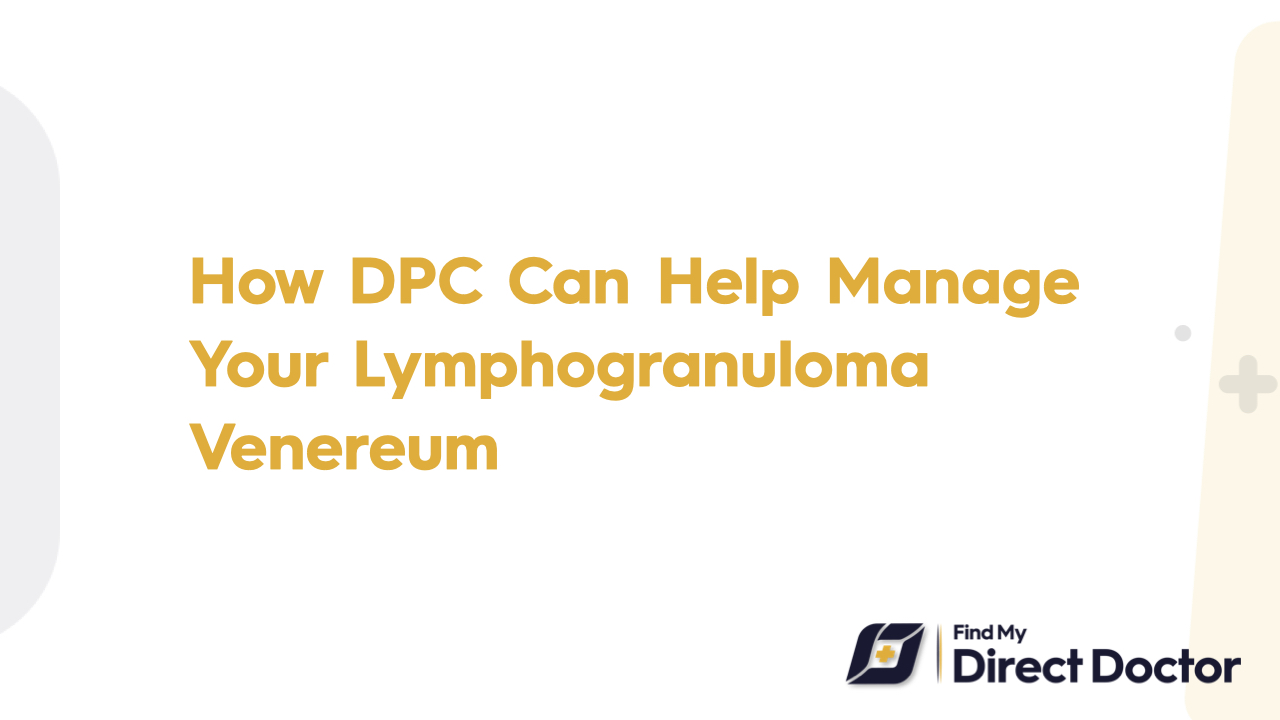



Certain strains of the bacterium Chlamydia trachomatis are responsible for the sexually transmitted infection (STI) known as lymphogranuloma venereum (LGV). It mostly affects the lymphatic system and can lead to swelling of the body's immune system's lymph nodes. Although it can affect both men and women, men who have sex with other men are more likely to get LGV. Usually, the infection starts as a little, painless sore or ulcer at the infection site, which may go undetected. Following this, the groin's lymph nodes enlarge, causing pain and tenderness.

Depending on the infection's stage, LGV symptoms can change. A little lesion or sore may develop on the mouth, anal, or vaginal area in the early stages. The enlarged lymph nodes may become more apparent as the infection worsens, and in rare instances, they may develop into abscesses, which would result in even more discomfort and swelling. More serious side effects from LGV, such as fistulas, scarring, and reproductive organ damage, may develop if treatment is not received. When it progresses, systemic symptoms like fever, exhaustion, and weight loss may occur.
By giving patients rapid and easy access to medical professionals who can identify and treat Lymphogranuloma venereum early on, Direct Primary Care (DPC) can be extremely helpful in treating the illness. Patients benefit from continuous treatment and convenient access to their provider with DPC, which guarantees that symptoms are treated quickly and efficiently. DPC providers can give prompt prescriptions and monitoring to guarantee that the infection is eradicated, and as LGV is caused by a bacterial infection, early treatment with antibiotics is crucial to avoid problems.
Personalized care is another advantage of DPC. Throughout the course of treatment, DPC allows clinicians to keep a close eye on the patient's condition and, if needed, modify medicine to achieve the best possible result. In order to check for potential issues, patients with LGV may also need follow-up visits, which can be easily arranged in a DPC environment. In order to stop the infection from spreading and lower the chance of recurrence, DPC providers can also provide counseling and instruction on safe sexual practices.
For patients with lymphogranuloma venereum, the main benefit of Direct Primary Care is the continuous, individualized care that the program offers. DPC eliminates the need for referrals and lengthy wait times by giving patients direct access to their healthcare practitioner. Effective management of LGV depends on early diagnosis and action, which is made possible by this open communication. Serious side effects such abscesses, scars, and problems with reproductive health can be avoided with early treatment.
Addressing the psychological and emotional effects of having a STI like LGV is another advantage of DPC. It can be challenging to deal with the stigma attached to STDs, and having a reliable healthcare professional who provides private, considerate treatment can make a big difference. Throughout the course of therapy, DPC providers can spend more time having meaningful conversations with patients, providing them with support and direction. Talking about preventative measures to lower the chance of reinfection can also benefit from this continuing assistance.
The management of lymphogranuloma venereum is very individualized in a Direct Primary Care context. Because the severity of each LGV case might differ, DPC providers collaborate closely with patients to create a customized treatment plan that meets their individual needs. For example, based on the severity of the infection and the patient's general health, the provider may modify the length of antibiotic treatment. DPC providers can give prompt care or, if necessary, refer patients to experts in the event of problems like abscesses or fistulas.
Follow-up visits are another aspect of DPC's personalized treatment to make sure the infection has been completely treated and the patient is recuperating without any long-term consequences. DPC providers can provide continuous monitoring to identify any indications of reinfection because LGV can recur if not untreated. In order to ensure that precautions are taken to avoid infections in the future, patients are also encouraged to have an open conversation with their provider about their sexual health and lifestyle. Strong patient-provider relationships are fostered by this ongoing, tailored care, which lowers the risk of long-term health problems and facilitates the management of LGV.
Previous Post